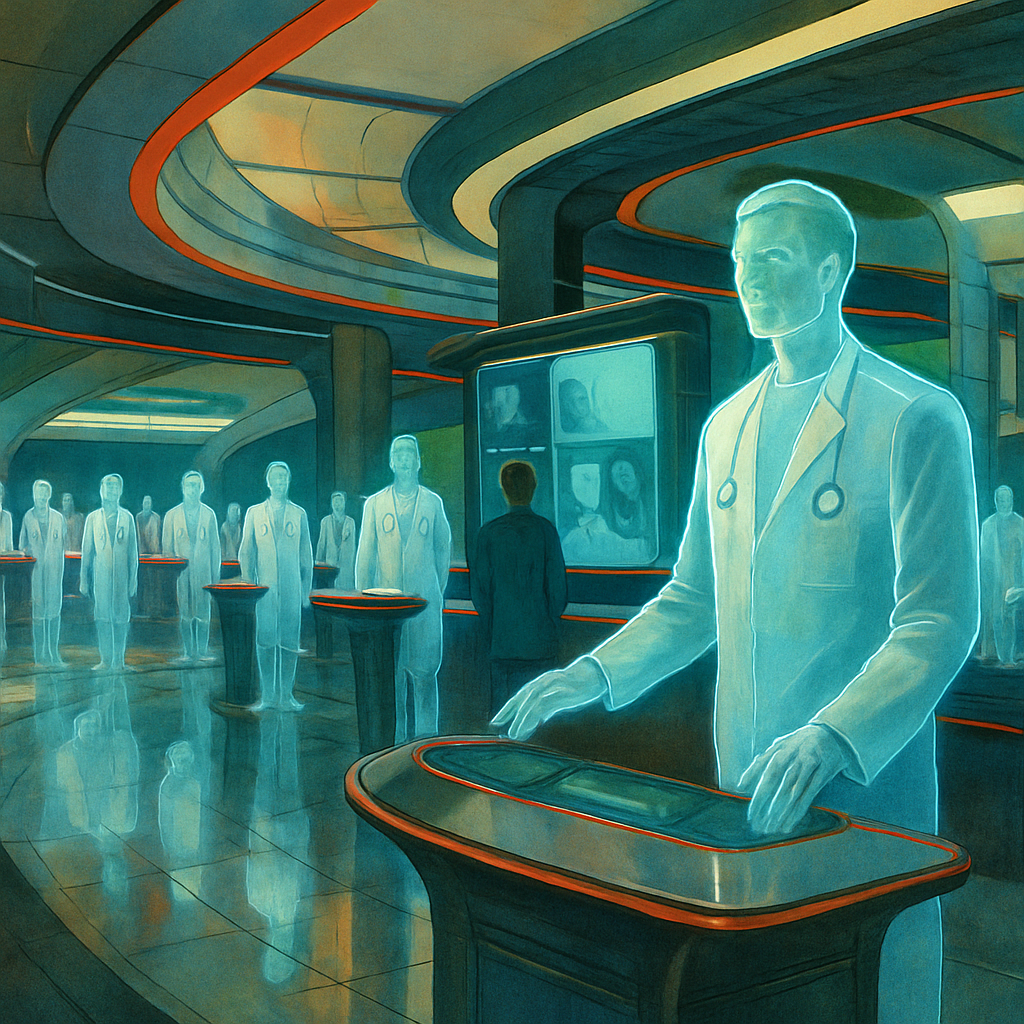China Launches Groundbreaking AI Hospital: 14 Virtual Docs on Standby for Daily Patient Marathon!

“China Unveils World’s First AI Hospital: 14 Virtual Doctors Ready to Treat Thousands Daily”
“China has unveiled what it has dubbed the world’s first AI hospital, complete with virtual doctors on standby 24/7. In total, there are 14 AI doctors – ranging from general practitioners to specialists – ready to treat an estimated several thousand patients daily.”
Welcome to the future, folks. China has rolled out the carpet for the world’s first AI hospital, spacious enough for 14 virtual AI doctors who are itching to dole out medical advice. Specialists, generalists- they’ve got the whole gang. Their patient list? Oh, just a modest few thousands every day.
This isn’t a sci-fi flick or a theme park ride, folks. You’ve got to give it to them, these virtual healthcare providers are available round the clock and come with built-in bathroom breaks. And did we mention the queue? Well, there isn’t one! No more awkwardly shuffling foot to foot in a waiting room lined with flu-ridden, coughing patients. The intent of the Chinese hospitals is to let its AI doctors to work in tandem with human doctors to manage health records and aid with diagnosis. Upshot: lower on-site visits, lesser workload for human doctors, and more efficient health services.
And the Chinese tech isn’t stopping at just AI doctors preparing to do house calls. We’re talking intelligent robots deployed to perform routine tasks, assisting surgeries and nursing routines. Future-proof hospitals indeed. The Chinese Health Commission hasn’t just embraced AI in healthcare, it has swept it off its feet and gallantly carried it across the threshold.
With China leading the charge, scorned skeptics may mumble something about data privacy issues you ask? Well, the code of conduct set by the Chinese hospitals ensures encryption and secure data handling. Worries of data being misused? The AI doesn’t have time for that. It’s too busy churning medical histories, diagnosis, treatment plans – aiming for that bullseye of accuracy.
Given, it’s new, it’s shiny, it’s AI. But from the looks of it, the thought of virtual hospitals run by synthetic doctors is not a pipe dream anymore. It’s fully functioning and has a potential to revolutionize the healthcare sector. The real question now is, can the rest of the world keep pace? Or better yet, should we? Remember, all that glitters isn’t gold – but in this case, it might just be a team of 14 AI doctors ready to heal the world.
